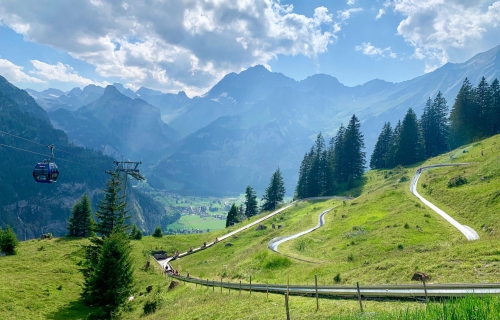Allschwil Climate by Month
The temperature in Allschwil can vary quite a bit throughout the year.
Temperatures can be warm during the warmest months,
and cold during the cooler months.
It also has a relatively rain/snowy climate with high levels of precipitation.
Now, let’s break down all the climate details for a clearer picture.
Average day and night temperature
Visitors to Allschwil can expect significant temperature changes throughout the year. On average, daytime temperatures range from a comfortable 26°C in July to a chilly 6°C in January. Nighttime temperatures can drop, with averages reaching -1°C in January.
The mean minimum and maximum temperatures throughout the year
Precipitation and rainy days
Allschwil is known for its substantial rain/snowfall, with annual precipitation reaching 1233 mm. The wettest period in Allschwil occurs in May, which receives around 128 mm of precipitation. During the driest month, February, Allschwil experiences moderate rainfall, totaling approximately 84 mm. The consistent precipitation levels throughout the year contribute to a relatively stable climate.The mean monthly precipitation over the year, including rain, hail and snow
Sunshine over the year
In Allschwil, summer days are longer and more sunny, with daily sunshine hours peaking at 7.9 hours in July. As the darker season arrives, the brightness of the sun becomes less. December sees a soft sun for only 1.8 hours per average day.Monthly hours of sunshine
Daily hours of sunshine
Average humidity
The relative humidity is moderate throughout the year in Allschwil.
Relative humidity over the year
The best time of year to visit Allschwil in Switzerland
During the months of June, July, August and September you are most likely to experience good weather with pleasant average temperatures that fall between 20°C and 26°C.Other facts from our historical weather data:
July has an average maximum temperature of 26°C and is the warmest month of the year.
The coldest month is January with an average maximum temperature of 6°C.
May tops the wettest month list with 128 mm of rainfall.
February is the driest month with 84 mm of precipitation.
July is the sunniest month with an average of 237 hours of sunshine.
No idea where to travel to this year? We have a tool that recommends destinations based on your ideal conditions. Find out where to go with our weather planner.




